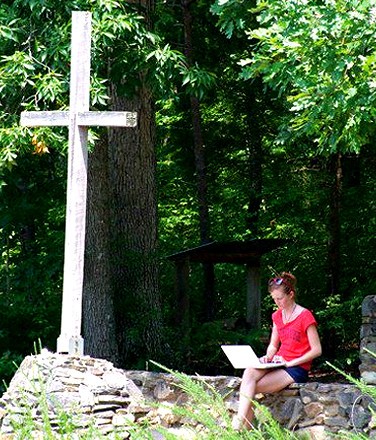Tech detox: Unplugged at church camp

With over 360 acres of lush terrain, a lake, an outdoor chapel, a large community garden, a zip-line and a high ropes course, Chestnut Ridge Camp in North Carolina offers activities that engage summer campers with nature, with God and with each other.
But please, if you come, leave your cell phone at home.
As youth become more and more attached to their cell phones and digital music players and to mobile devices that allow Internet access virtually anywhere, Christian camps are grappling with how to resist the power and presence of this technology. For many camp directors and staff, the problem is not the technology itself but the culture of multitasking and instant communication that makes it hard for campers to pay attention to what is happening at camp and to be fully present with one another.





